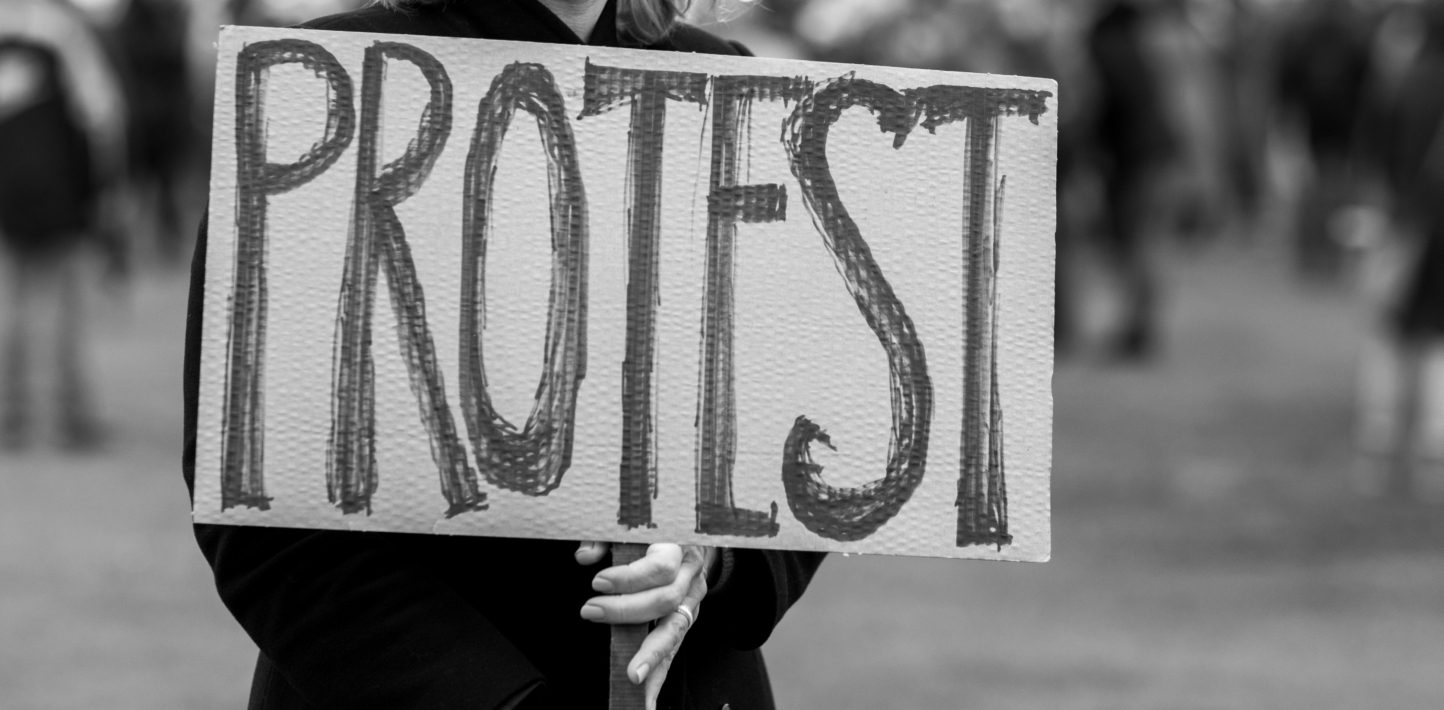Unlawful surveillance of peaceful protesters in the Netherlands is undermining the right to privacy and having a chilling effect on the right to protest, said Amnesty International Netherlands in a report published today.
The report, Unchecked power: ID checks and collection of data from peaceful protesters in the Netherlands, finds that supervision and control of police surveillance methods fall short of both national laws and international human rights standards.
“By regularly demanding that peaceful protesters produce their ID cards, police are not only violating the right to privacy but also creating a significant chilling effect on the right to freedom of peaceful assembly” said Director Amnesty International Netherlands, Dagmar Oudshoorn.
“The broad discretion police officers have to decide who to stop and check during protests has created a grave risk of arbitrariness and discriminatory use of power including ethnic profiling and puts people off coming onto the streets.”
The research undertaken between September 2020 and November 2022, involved interviews with 50 protesters and reveals a widespread pattern of intimidatory police action.
Police officers have a broad discretion to decide who to stop and check during protests and ID checks are regularly used to collect data of peaceful protesters.
Anyone wanting to protest in the Netherlands faces monitoring by the police. The police have discretionary powers which are overly broad and vague. There is a striking lack of supervision of the police surveillance methods. The report identifies a number of methods deployed by the police to identify and monitor protesters, ranging from illegal ID checks, social media monitoring, use of drones at protests, infiltration of group apps and unannounced home visits. Once checked, every ID is registered in a police database for at least five years in breach of the right to privacy.
One protester, Robert, told Amnesty International how, during an anti-racism protest, he and three other protesters were surrounded by up to nine policemen. “We were told we were doing something forbidden. They wanted to see our ID. They invoked their position of power. I handed over my ID very quickly. This is similar to what I’ve experienced at other protests. In my experience, contact with the police and the municipality is very intimidating and frustrating.”
As a result of current practices, certain groups are more impacted by police stops than others – i.e. over-policed groups who have cause to fear discriminatory and otherwise unlawful police interventions.
The report finds that the police are failing to adhere to the 2003 Compulsory Identification Act which makes clear that ID checks are only permitted where reasonably necessary for the performance of the police officer’s job. Current police practices reportedly go directly against what is desirable or permissible under this legislation.
“Protest is a fundamental right not a privilege and yet in the Netherlands it is being increasingly criminalized and as a result, people are being discouraged from protesting,” said Dagmar Oudshoorn.
“Instead of secretly monitoring peaceful protesters, police should focus on facilitating assemblies and authorities must take action to end the unlawful monitoring of peaceful protesters. ID checks should only be carried out if there is a reasonable suspicion of a serious criminal offence.’’
This report is part of Amnesty International’s global flagship campaign “Protect the Protest” which will challenge attacks on peaceful protest, act in solidarity with those targeted and support the causes of social movements pushing for human rights change. https://www.amnesty.org/en/latest/news/2022/07/protect-the-protest/

© Lorado

